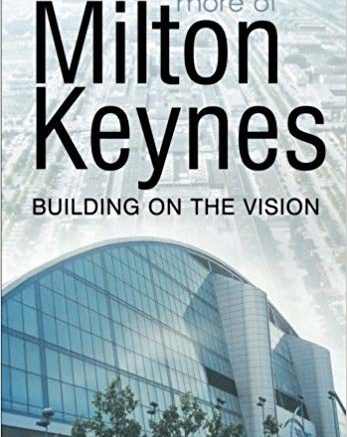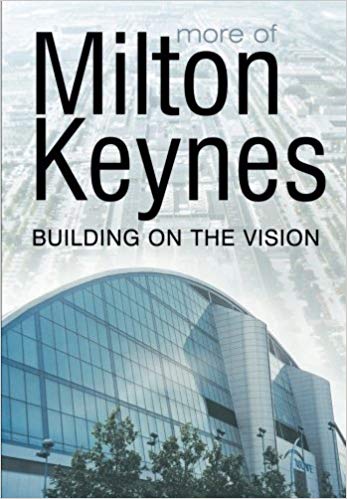
Milton Keynes has been designated one of the four potential growth areas in the south-east of England. There are plans to build up to 70,000 new homes in the city before 2031, and also develop transport infrastructure. Here, Robert Cook examines the history of Milton Keynes so far, and also explores surrounding towns and villages.
August 30th 2022
Milton Keynes Council set to introduce MK-wide standards for developers
Saturday, November 20th, 2021 8:32am
Share on Messenger Share on Twitter

The clearer guidance has been prepared for developers so they can better understand MK Council’s strict sustainability standards for zero carbon homes and commercial buildings.
Developers can only secure planning permission if they can demonstrate that all building work will be carried out to MK’s very high standards for sustainability.
As much as 40% of the UK’s energy-related carbon emissions comes from the construction industry, but MK Council’s current standards already require new developments to be built far more sustainably.
Requirements include
- Using low and zero carbon construction materials including reusing 70% of any demolished buildings
- Not ordering more materials than is necessary to limit waste
- Designing buildings to make it easier for inhabitants to recycle, use less water, keep warm, and charge electric vehicles nearby.
Buildings should also be designed to be resilient to the effects of future climate change that cannot now be mitigated, such as floods.
The Council will also require developers of large schemes (more than 11 homes, or more than 1000 sqm of commercial space) to provide an Energy and Climate Statement setting out how they are addressing specific issues relating to carbon reduction, air quality, overheating and 15 quality and monitoring regimes.
Leader of MK Council, Cllr Pete Marland said: “The built environment plays a big part in the challenge of climate change and we want Milton Keynes to be an international vanguard for sustainable and considered development.
“In 1975 Milton Keynes was the first place in Britain with a solar powered house, and we continue to push boundaries today.
“Introducing this guidance gives developers a clear blueprint of the high standards we expect, so we can all work together to build the homes and infrastructure we need to tackle global climate challenges. As a result we hope to see many more affordable and practical green homes in MK as well as more iconic zero carbon commercial buildings.”
August 23rd 2022
Running Down
All images R.J Cook Appledene Photographics except where otherwise stated.

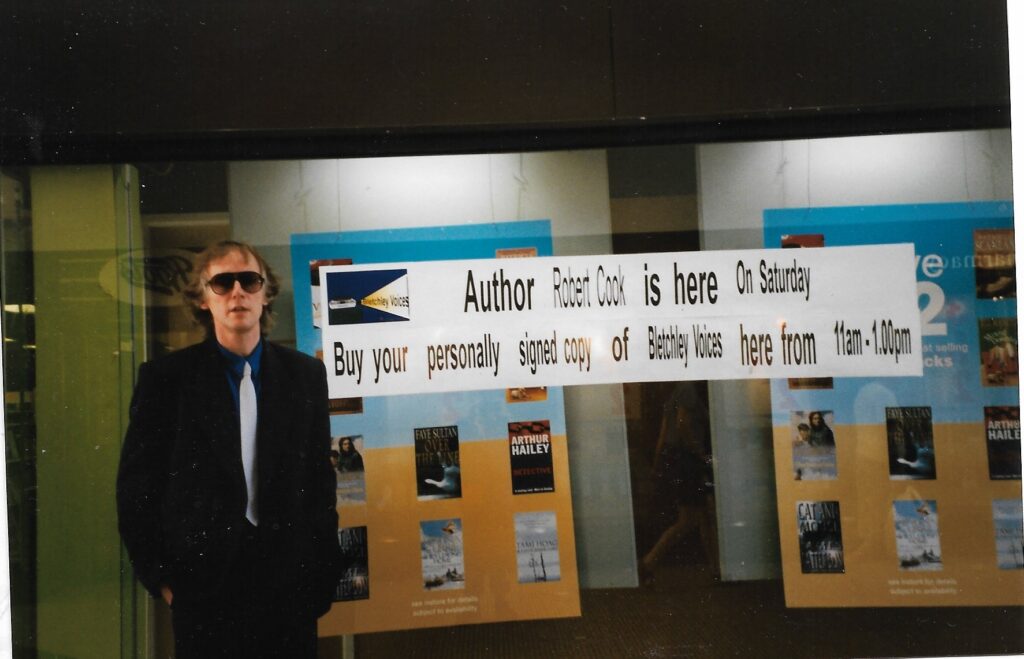
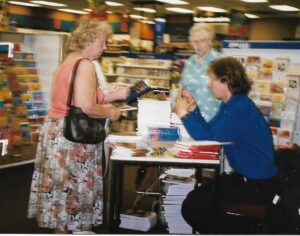

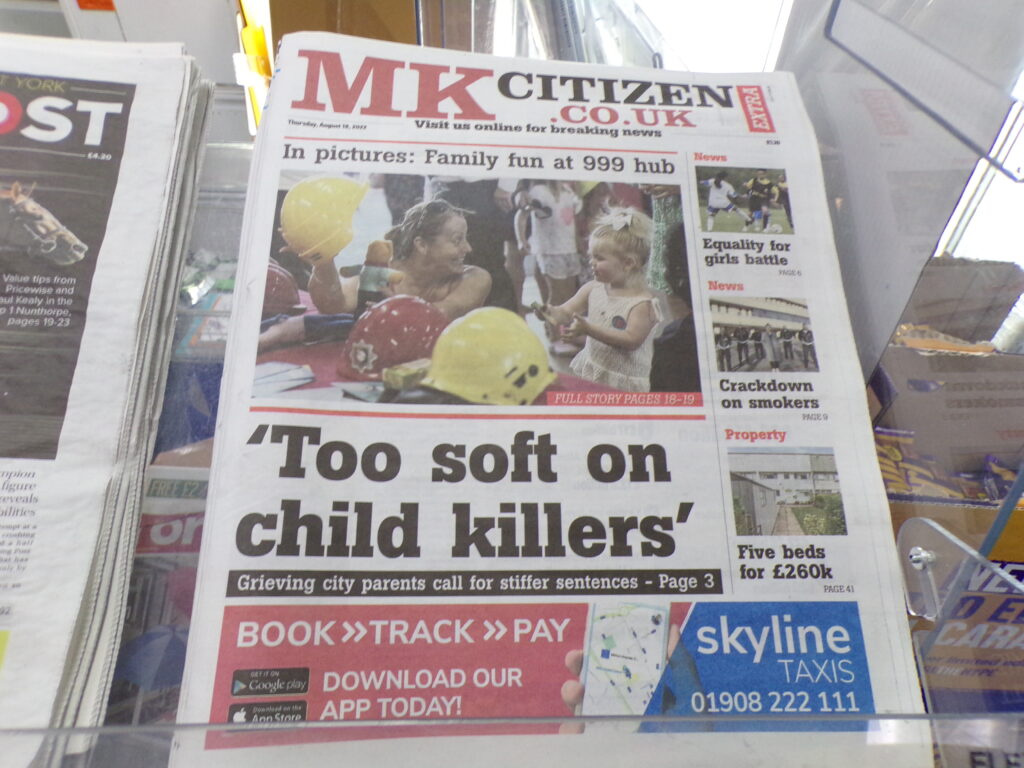
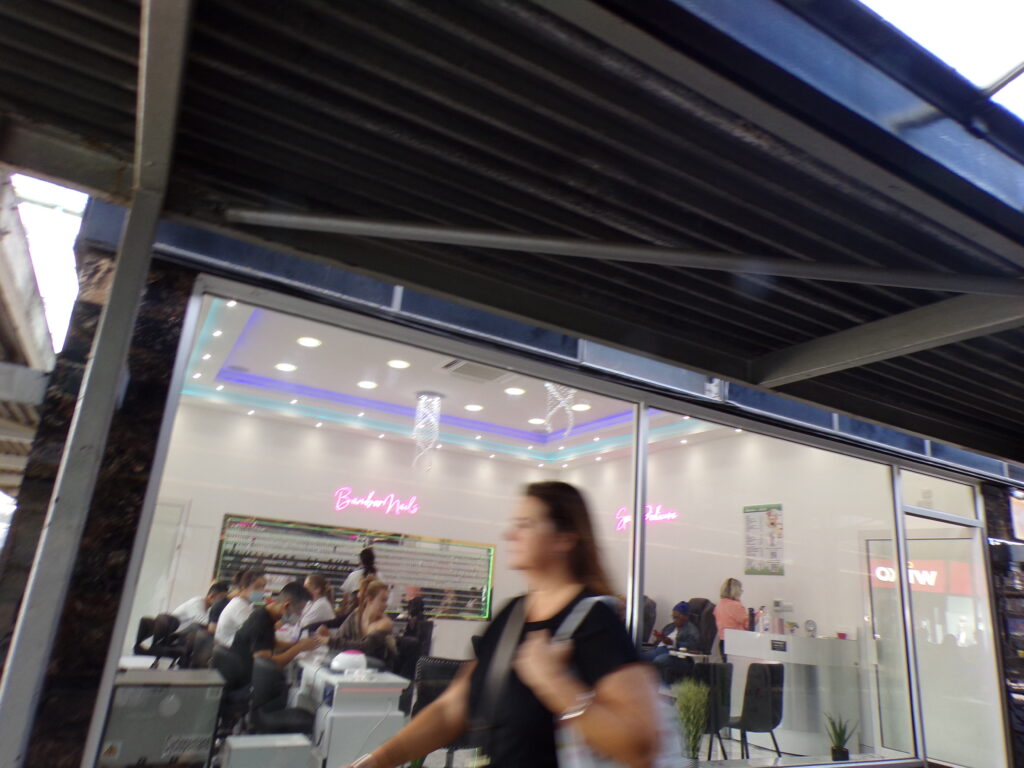
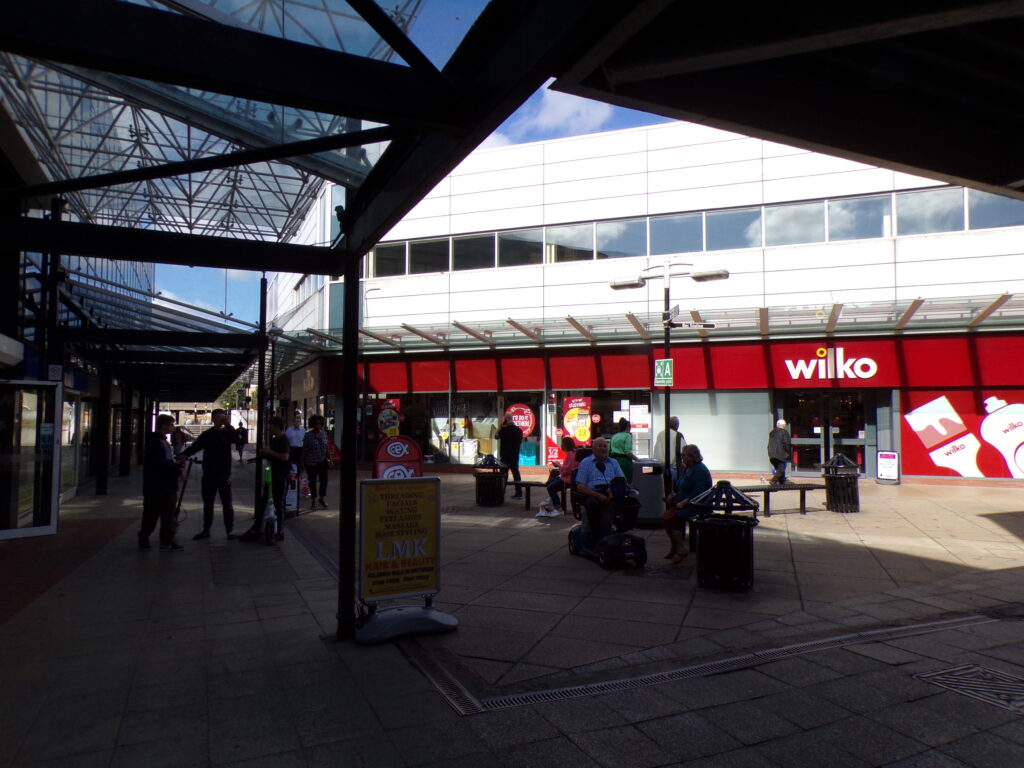
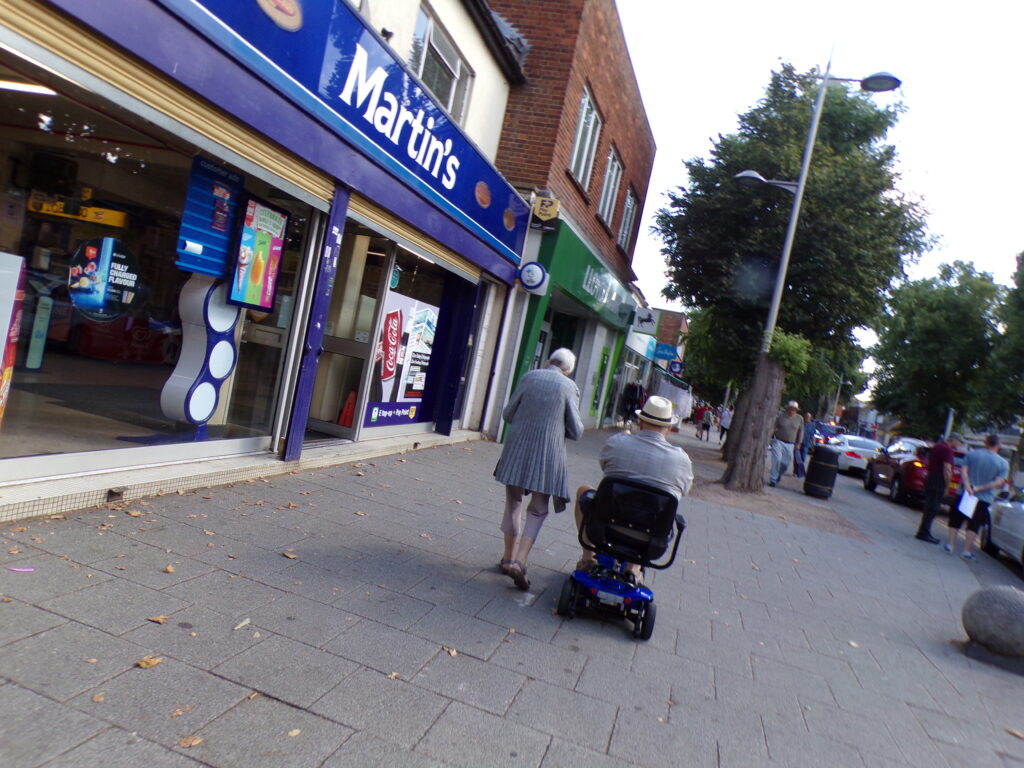
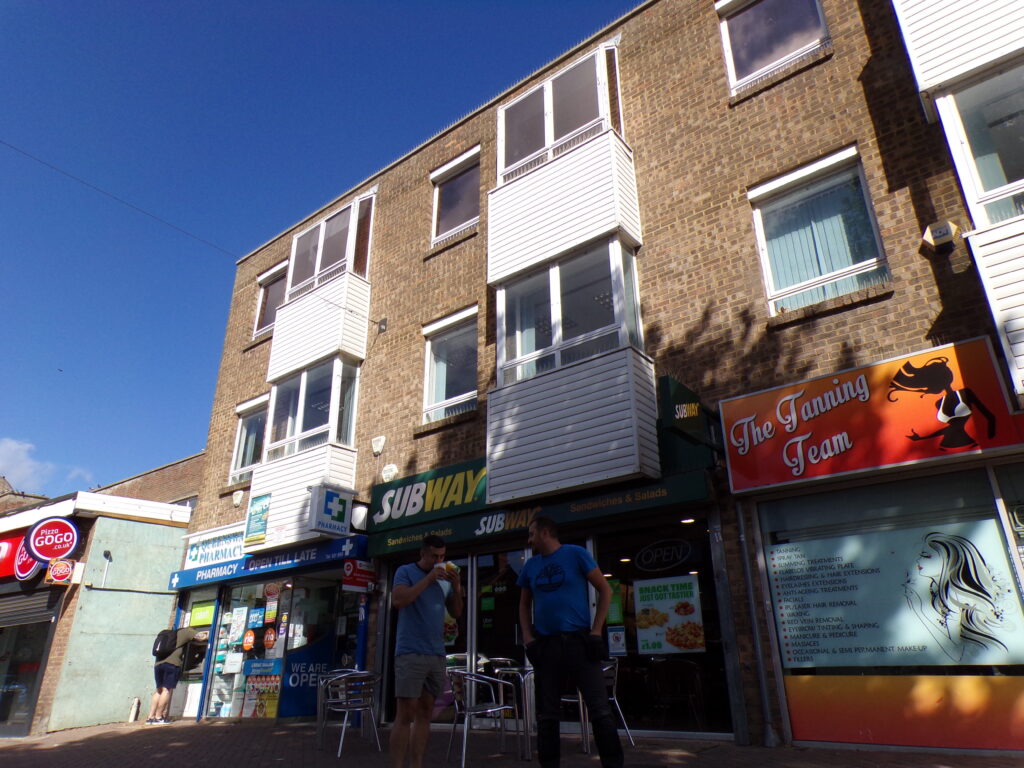
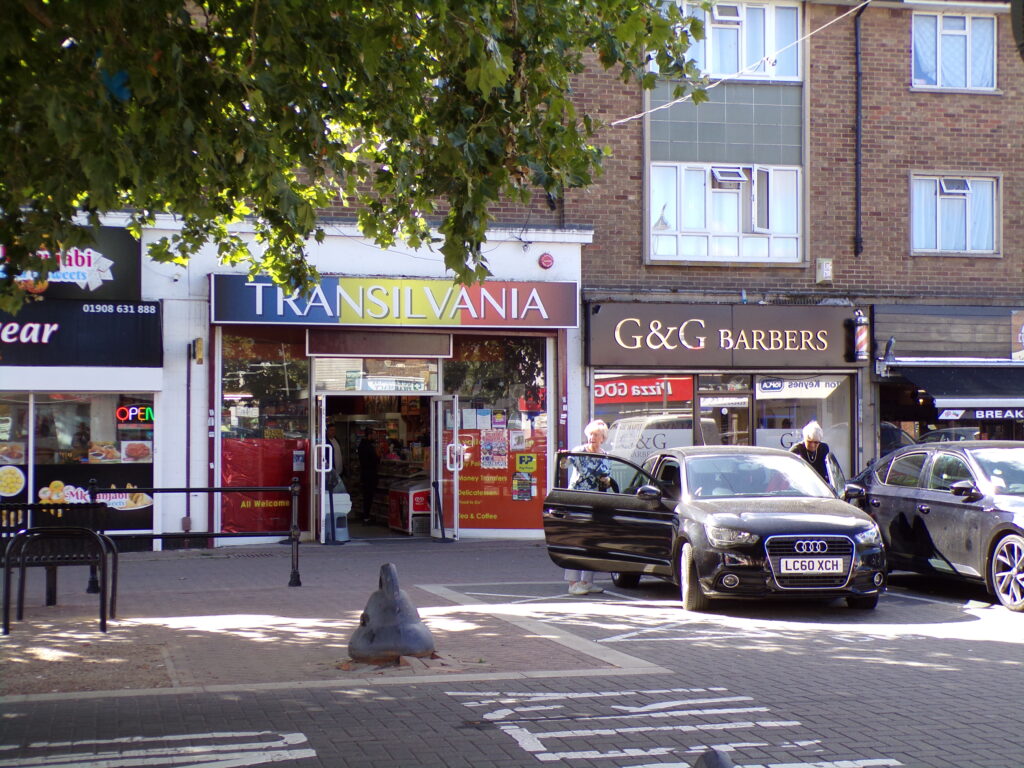
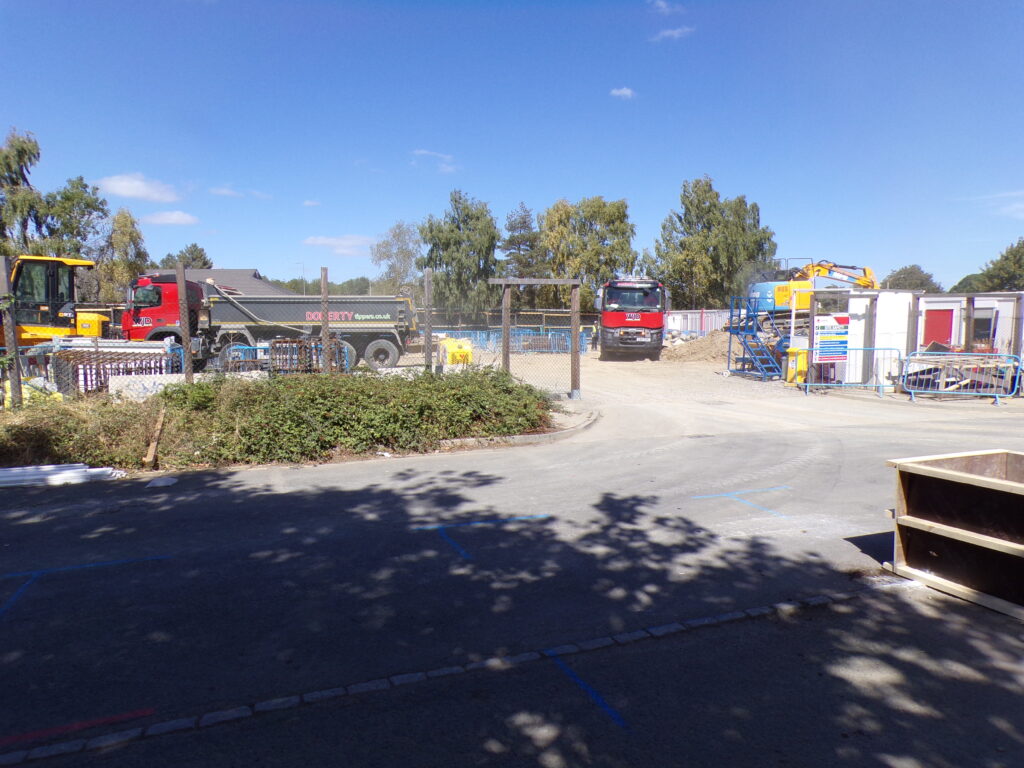
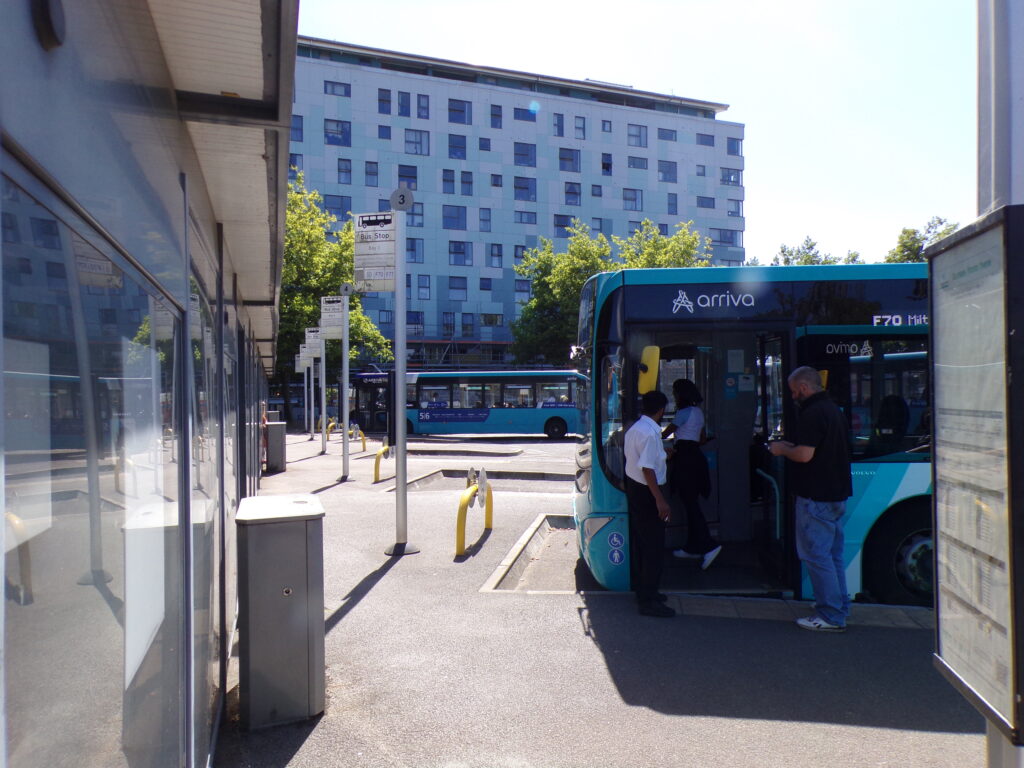
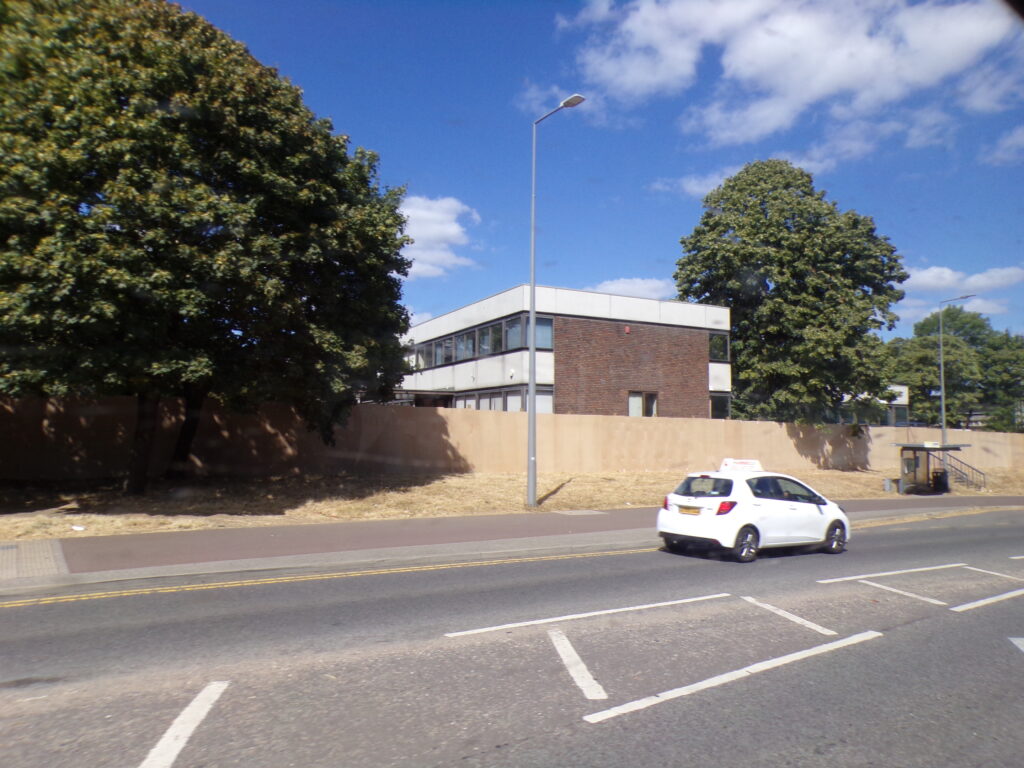
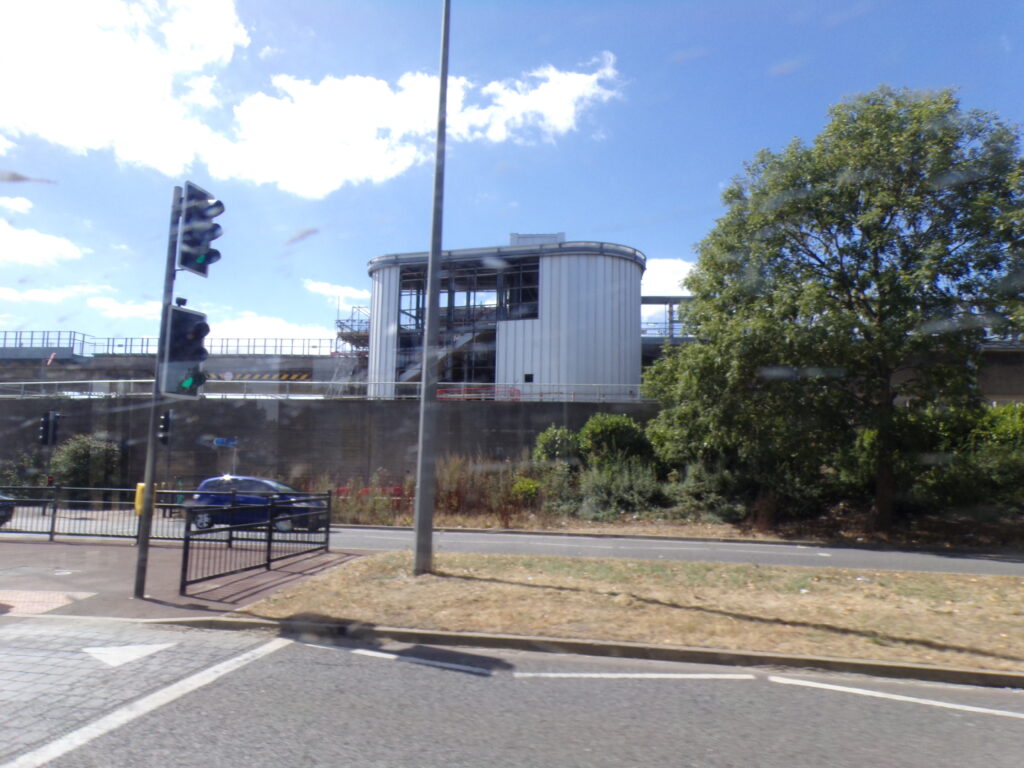
August 5th 2022
Elegance
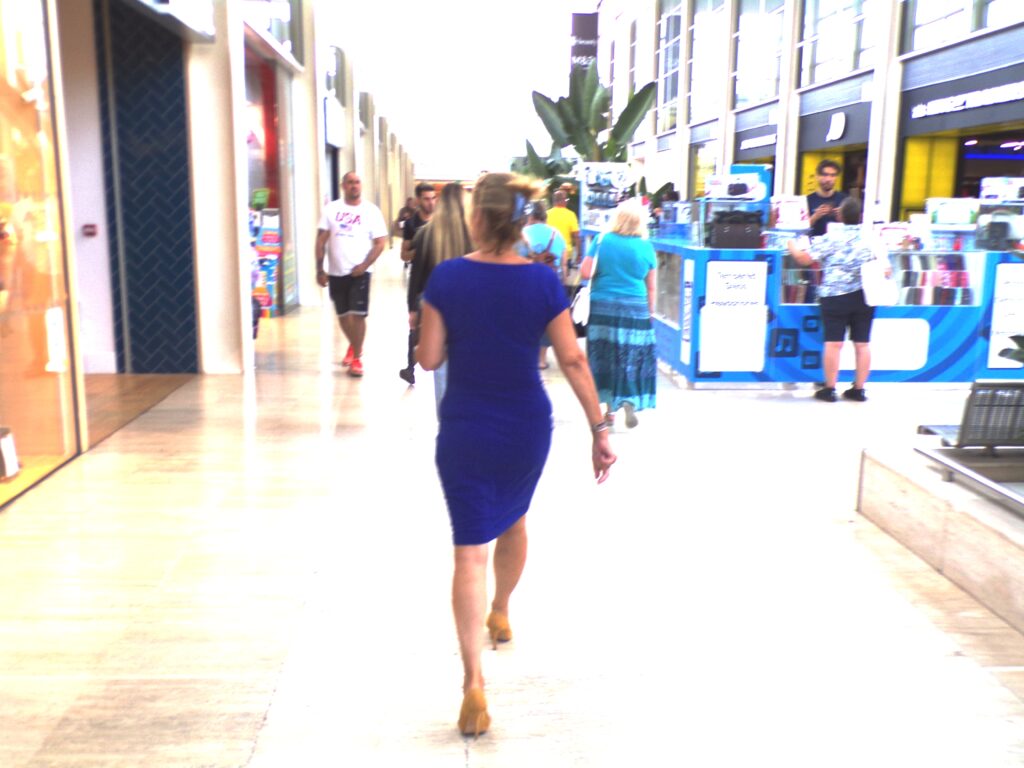
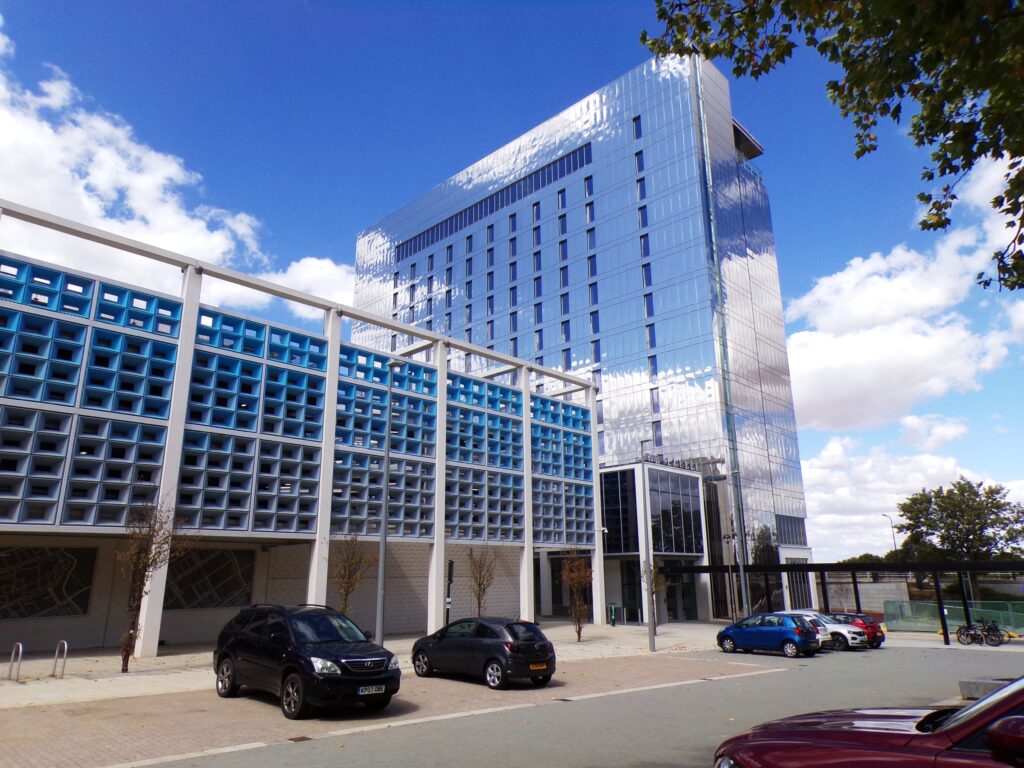
Image Appledene Photographics, August 5th 2022.
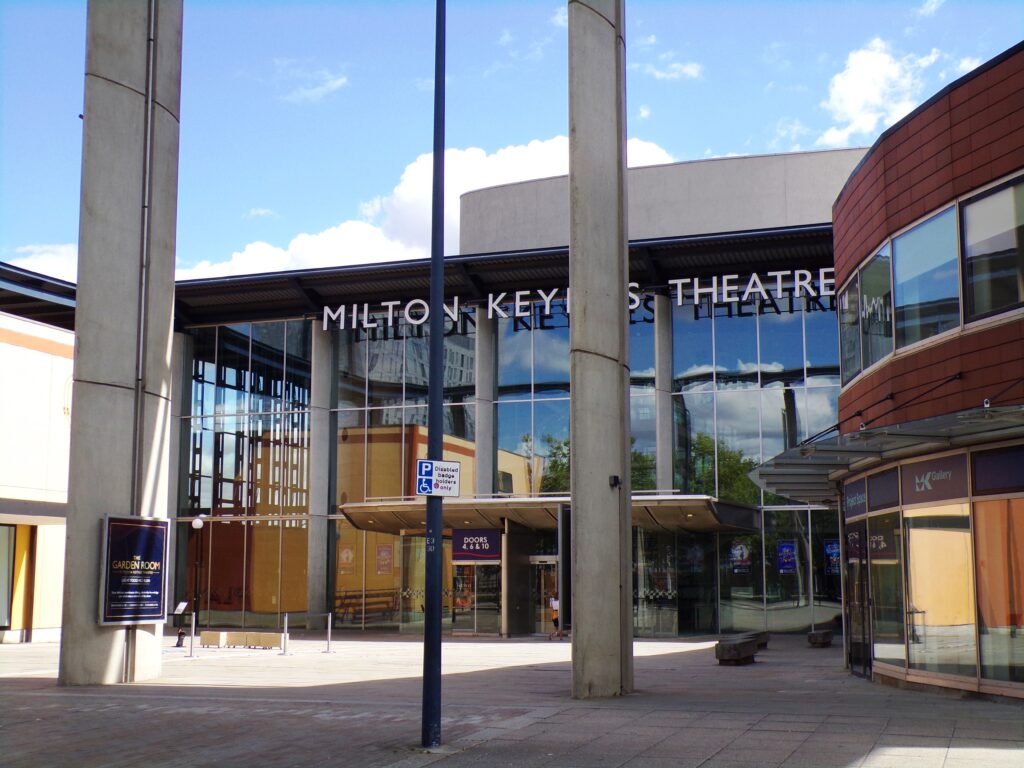
Image Appledene Photographics, August 5th 2022.
August 3rd 2022
Fifty Years of Milton Keynes, City Status at Last.
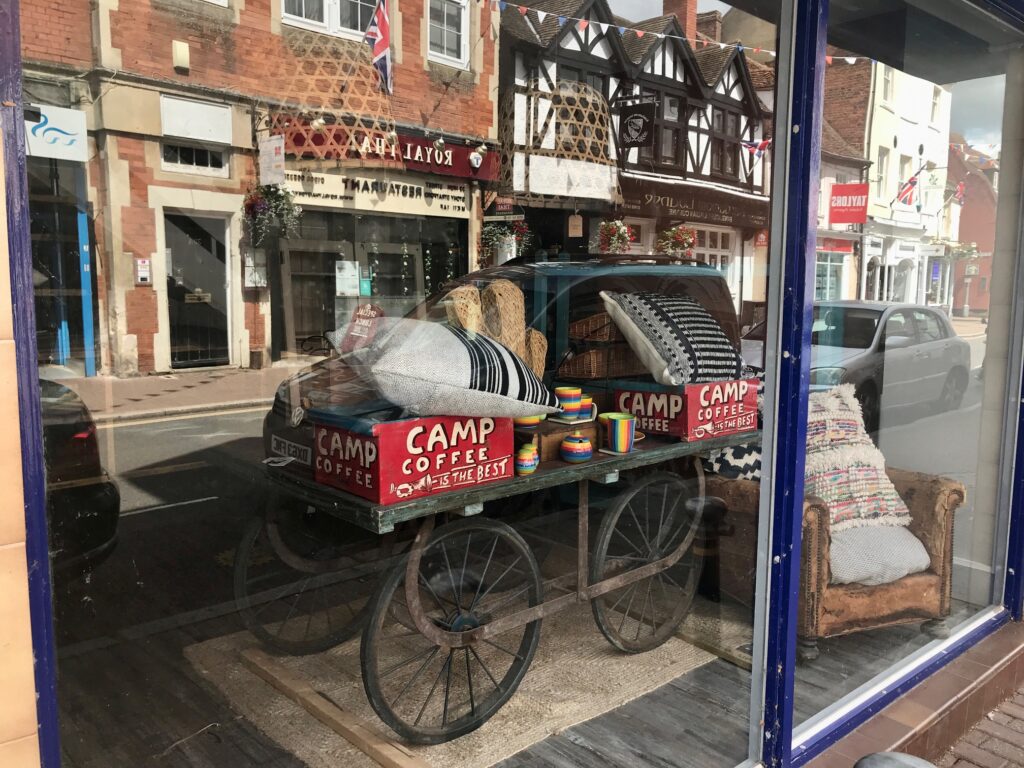
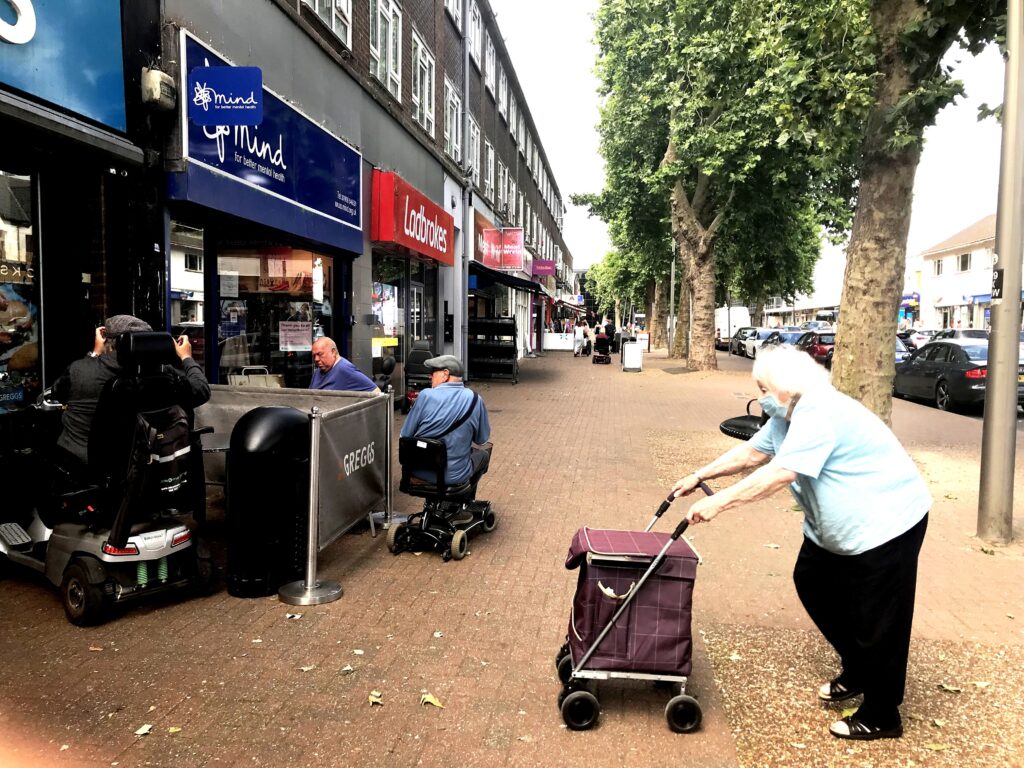
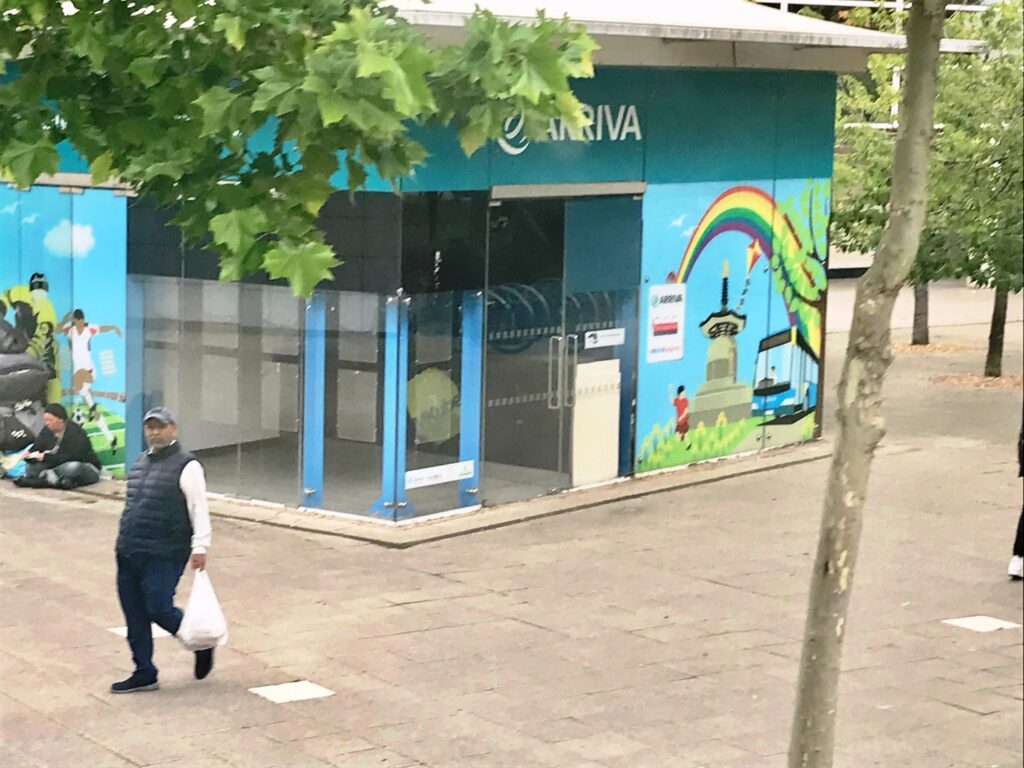
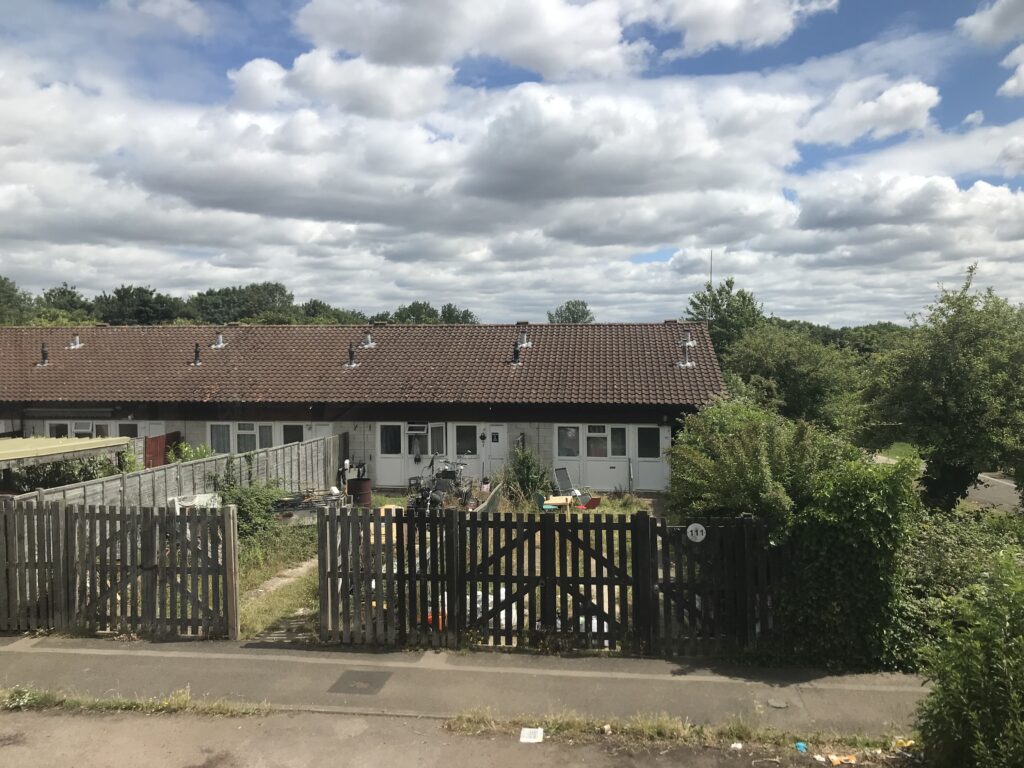
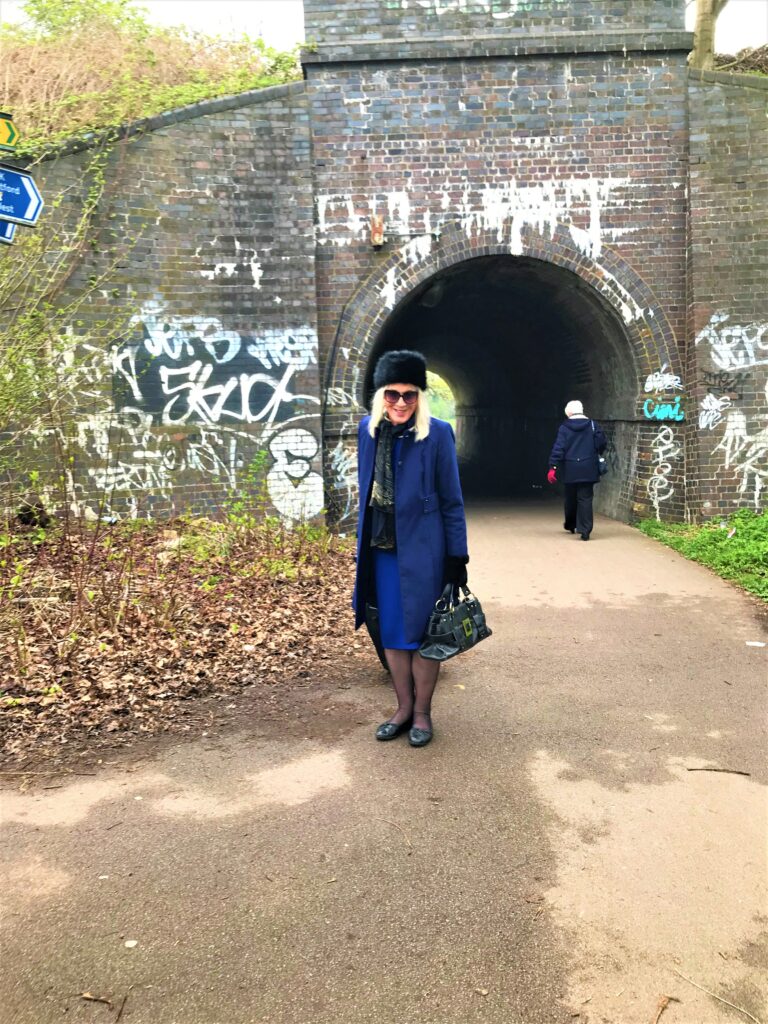



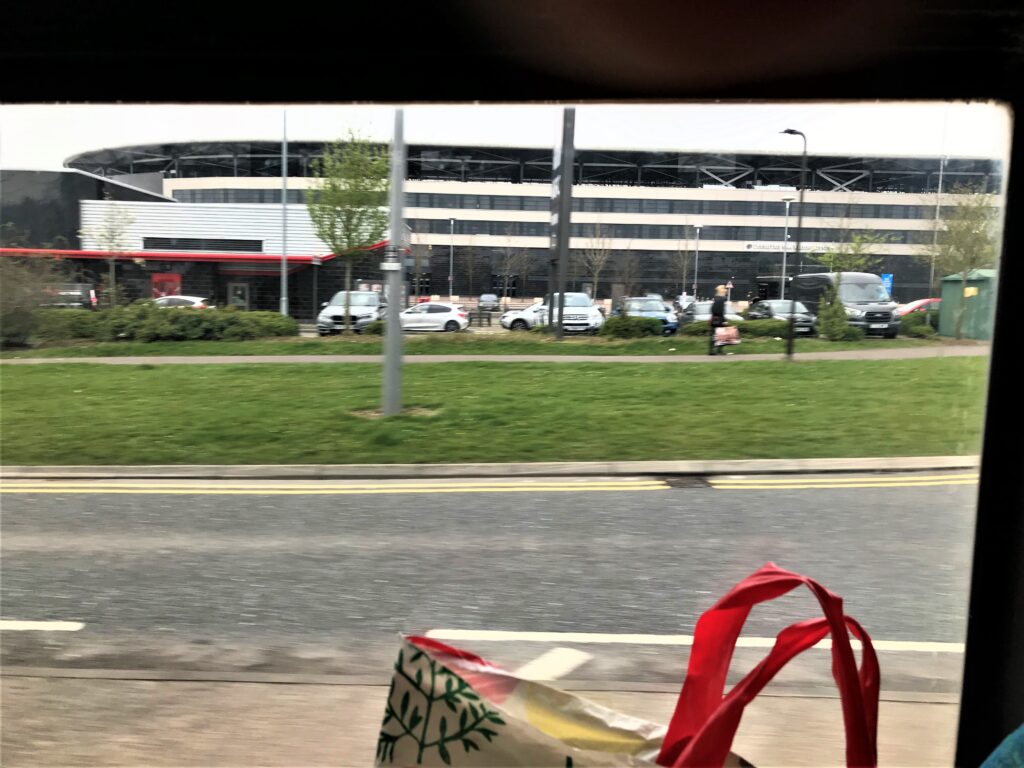
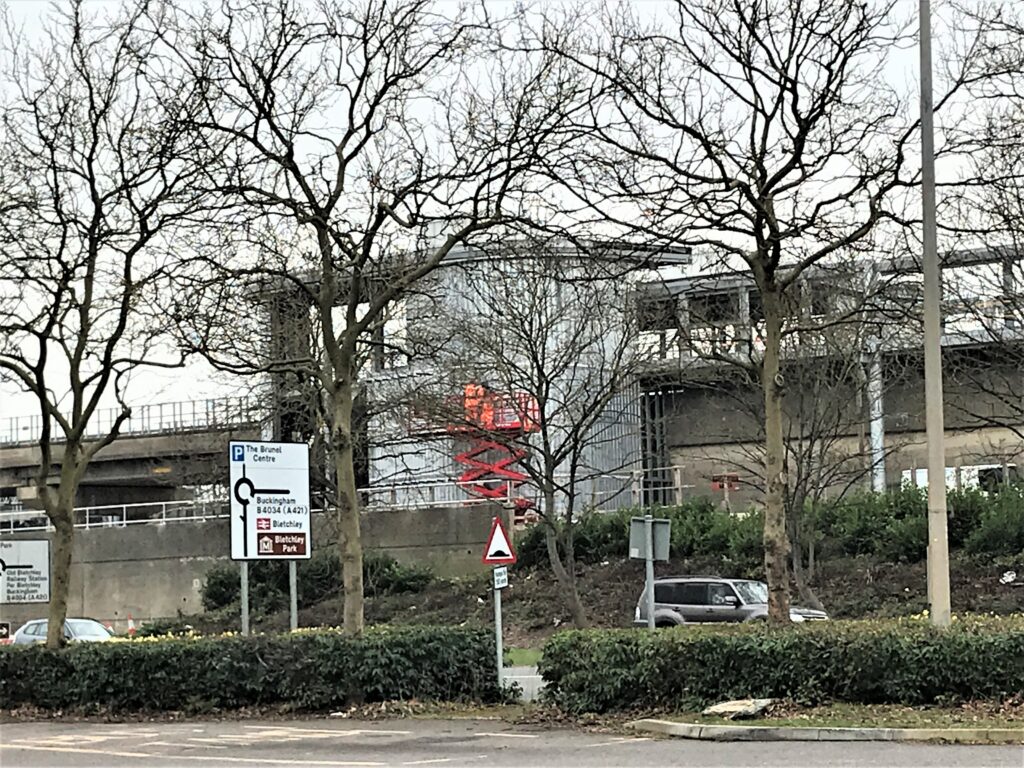
R J Cook
Milton Keynes
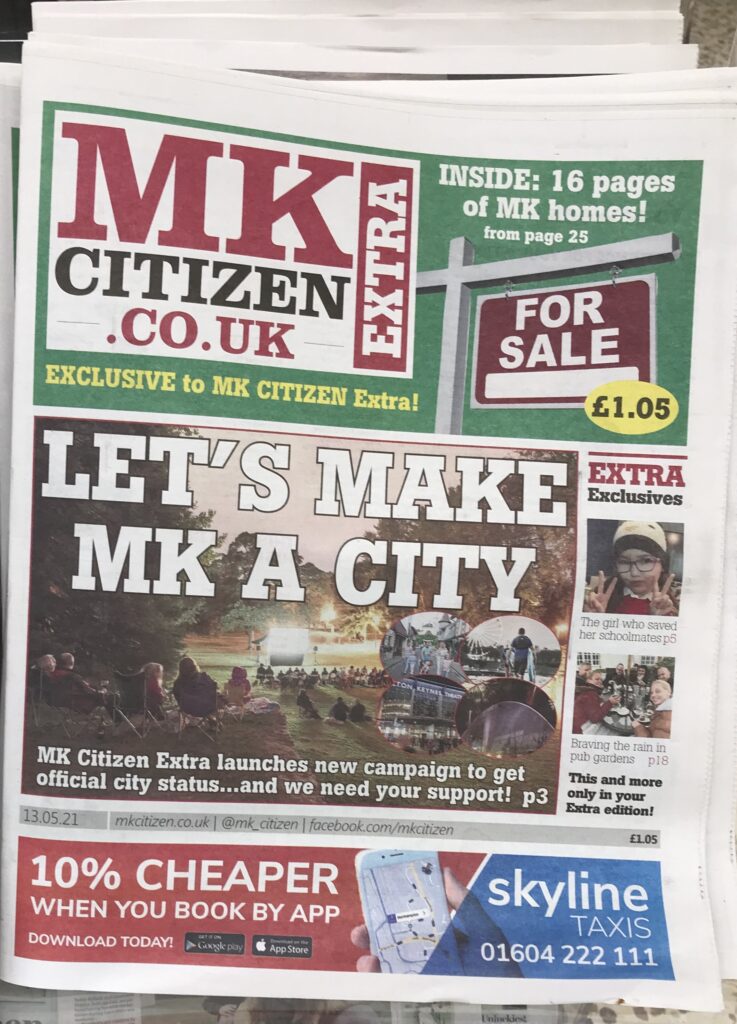
Editorial
The Crime Minister October 14th 2019

I do not recall Prime Minister Thatcher having much to say about toughening up on crime fighting. She was too busy making industry ‘leaner and fitter’ freeing up the City of London, turning education into a form of policing through the mind numbing national curriculum, destroying working families, raising unemployment, enriching a rich minority creating the me first culture ( the seed of ‘Me Too ‘ ) selling state assets off cheap and giving the police the opportunity to practice for riot control at the striking coal miner’s picket lines.
In the process, she destroyed the social fabric as we knew it and launched two wars- including the first Gulf War for the sake of UK And U.S oil interests.
She was a hard act to follow but New Labour’s Tony Blair was more than up to the job. It was not difficult for him to outshine Thatcher’s insipid successor John Major. The biggest robberies of the Major era involved the banks and city of London. No problem breaking laws when you are the law maker. Unfortunately for Johnson he is not in a position to make laws, but he is trying to impress with his Queen’s Speech.
Like Tony Blair- the man many would like to see tried for war crimes, but nothing has ever stuck to the man Private Eye magazine nicknamed Teflon Tony– Boris Johnson sees himself not so much as the Crime Minister, as Parliament would have us believe- but the Crime Fighting Minister.
Thus he has come out with the same old stuff about tougher and longer sentences with a focus on domestic and harassment crimes- the latter all female vote winning post Thatcher crimes. There is no mention of tough laws against women who commit domestic violence or lie about all forms of sex attacks. That, officially, doesn’t happen so doesn’t need laws.
Boris is now promising 20,000 more police officers to help his cause cleaning up crime infested anti social diverse Britain. Police sources have said that to meet this target over the next few years would require at least 200,000 applicants because they calculate that only one in ten applicants will have the special qualities needed to police modern Britain. One can easily imagine what these qualities are. I believe Portsmouth University offers the police special courses on the subject, awarding a BSc at the end of it.
There are very serious questions as to what these much sought after qualities are. The judge dealing with formerGovernment Chief Whip Andrew Mitchell’s libel case said : ‘The officer who said you called him a Pleb could not have been lying because he has no imagination and so is perfectly suited to his job as a police constable.
In that same Plebgate incident an officer was jailed for lying that he saw and heard Mitchell calling the officers bl–dy plebs. The officer was actually at home in Aylesbury at the time of the incident.
Matters got worse. In order to clear the adverse record against him, Mitchell agreed to see three officers from three overlapping police forces in his constituency. One of these forces was West Mercia. Mitchell met them in his constituency offices in Sutton Colfield. Mitchell’s wife did not trust the police so advised him to secretly record the meeting.
The three plain clothes officers came out of the meeting strutting eagerly up to the waiting media crews and their satellite dishes. Then the West Mercia Officer, DS Ken Mcall said that Mitchell admitted calling the officers plebs. Mitchell proved them liars.
A West Mercia Police Inspector, described as church going was deployed to investigate. He concluded that the officers were guilty of misconduct and should fce disciplinary proceedings, only to have his conclusions rejected by the force’s Deputy Chief Constable Simon Chesterman.
It came to light that Mitchell was known to have raised concerns about police overtime hours in his constituency, which as said, included West Mercia. He was out to raise effieciency. The Crime Commissioner for Dyffed Powys wrote an article on the matter for the Mail. He named Chesterman and refered to a feral police force.
I find it nauseating every time an officer has a mishap, accident in a police car during a dangerous pursuit or is killed on the job , that we have to hear the stuff about heroics. A hero is someone who does something he doesn’t have to for the sake of others. There may be a few of this type getting through the selection process if they are lucky.
In his book ‘Line of Fire’ one such honest senior police officer Brian Paddick wrote. ‘It wasn’t my homosexuality that caused me problems in the police, it was my honesty.’ He quotes Mark Twain who said: ‘Always tell the truth, that way you do not have to remember what you said.
Today a West Indian man arrested back in 1972, with his colleague by a Corrupt lying Metropolitan DS Police officer – who went on to die in jail for his part in planning a burgalary on police time- has won his right to appeal his conviction. He and a colleague were known as the Oval Two, and fought for black rights. The police are an appealing career choice for would be criminals and perspectivist thinkers ( See Social theory and Social Structure by R K Merton ). Thus it has been know to attarct all sorts of bigots, including racists.
The Oval Two were bailed for 8 months and did 8 months in jail. They had been followed by a group of officers led by the DS, falsely accused of shoplifting, attacked on the tube station, taken to a police station where a confession was beaten out of them. As said : that was back in 1972.! The jury automatically believed the police. There were no other witnesses. It has taken him all these years to win a right to appeal against his conviction.
Paddick writes near the beginning of his book about when he was a probationary constable. He said he was driven by a senior contable to a dance hall in a very West Indian part of South London on a Saturday night. While sitting there outside the main doors, Paddick wondered what he and his old colleague could possibly do to break up any fights.
Then a double decker bus went past and the senior man slammed the car into gear and chased after it.. As he drove with his flashing lights on, he said ; ‘Did you see that?’ ‘What?’ Paddick asked. ‘That bus ran a red light’. ‘No I didn’t see it.’ said Paddick. ‘Well you will say you saw it when you get back to the station. Two police officer’s words count for the truth against members of the public.’
I have my reasons for being interested in police corruption and how their system works. The head of the police college and the HM Inspector of Constabularies have raised questions about the wrong people getting promoted. One force, Cleveland, was described recently as not fit for purpose and the Met have been involved in a serious cover up regarding lies about a VIP sex abuse ring. This is the second occasion when Cressida Dick’s competence has been thrown intio question.
I could go on and it is time someone joined it all up wrote a book exposing the British Police for the instiutionally corrupt organisatioin that they are. It is a place of ritualistic behaviour, a quasi military hierarchy prone to bullying anyone who doesn’t seem to fit or blows a whistle- regardless of race or gender-where like recruits like, whatever the race or colour. Clevealnd forced reforming Sue Simm out of her job as CC and have had six new CCs in as many years.
Corrupt personalities may well be what they will be looking for in that 200,000- whatever they are really looking for, senior officers have too much power and independence so they will wraptheir actions all up in jargon. It has been argued that the recruitmenmt process has something to do with why the British police solve less than 6% of robberies.
They also have a reputation for victimising people they do not like, witholding and corrupting evidence. The recent Metropolitan Police scandal has seen the lead officer in the VIP case promoted and the official police watchdog coming out with what is widely regarded as a cover up or white wash. This body has been renamed the IPOC instead of the IPCC, but is still very much a part of the police system and at best a mailing service- old wine in a new bottle, or should I say Bluebottle!.
So if Crime Minsiter Boris Johnson really wants to make his mark he should do what no other Prime Minister or Home Swecretary has ever dared or wanted to do : STOP THROWING MONEY AT THE POLICE, REFORM THEM, FORCE AN EFFICIENCY DRIVE, GET A TRULY INDEPENDENT WATCHDOG WITH POWER TO ENFORCE PROSECUTIONS AND ENFORCE SEVERE PUNISHMENTS FOR POLICE WRONG DOING AND CUT CHIEF OFFICERS PARASITICAL PERKS.
The ludicrously outdated ranking system also needs looking at because it rewards those gifted at what the sociologist Irving Goffman calls impression management. It is a system which has ACC’s doing little more than writing appraisals, going to conferences and courses, junkeys in expensive hotels and playing golf with those they suck up to.
Good impressions of smarming for promotion are not the way to impress the wider long suffering wider public, though the well off who see the police as their guard dogs will go on fawning to them. It is hard pressed working people who experience the reality of everyday British policing and it is not nice for most of us. Robert Cook
Buckingham- the most affluent and historic town in North Bucks Posted October 13th 2019
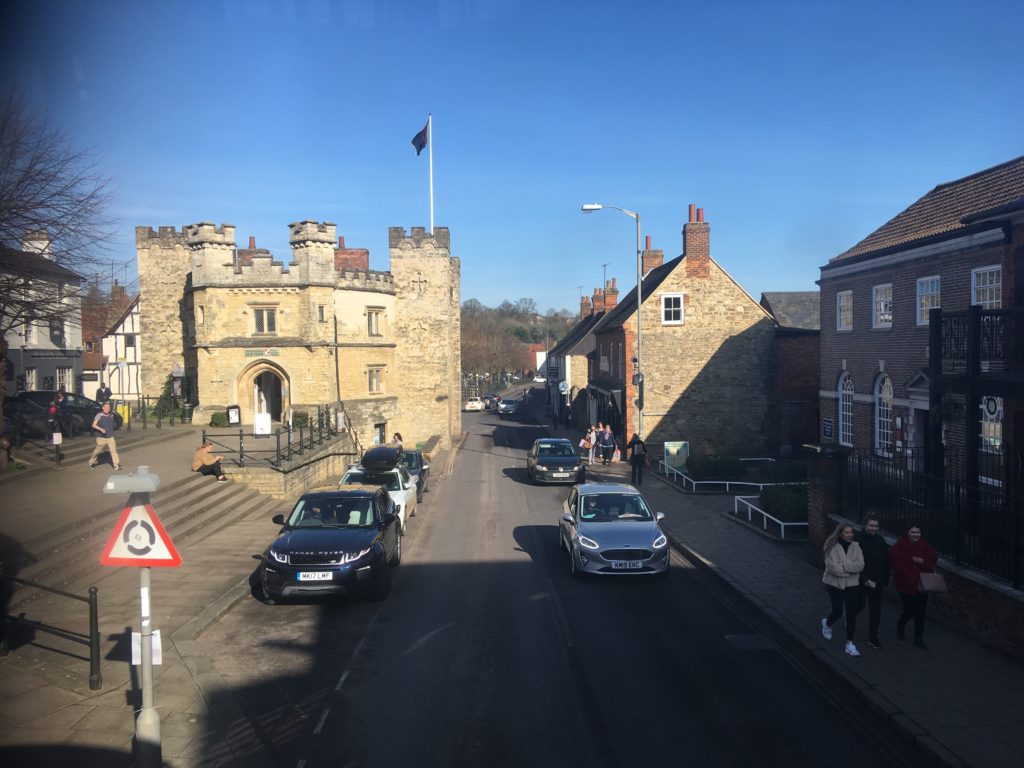
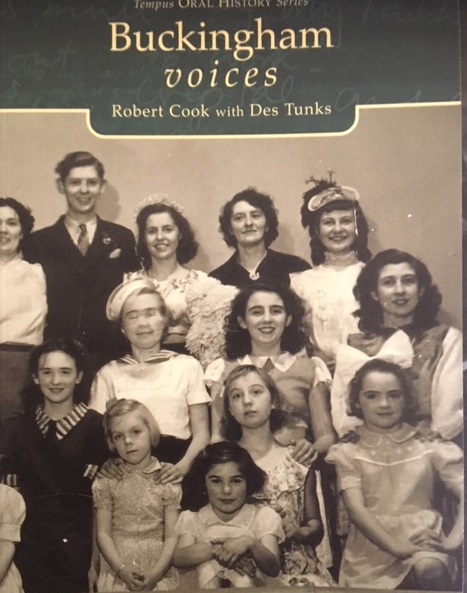
This was Bletchley September 2019
History is being made everyday. One could certainly not accuse the North Bucks Town of being stuck in the past.
I have had three books publsihed on the town. My father was a driver for London Brick Company at their Newton Longville Road brickwork- about which I have also written a book. I had my driving lessons and passed my test first time in that town.
So here are a few of the pictures I took around town this month.
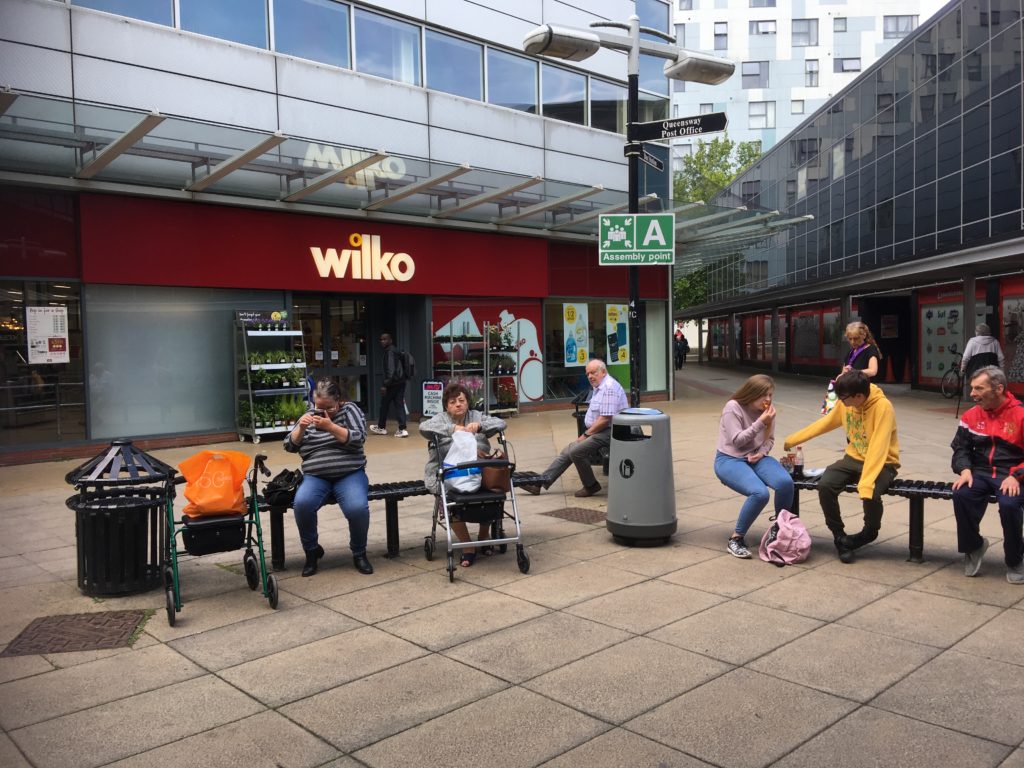
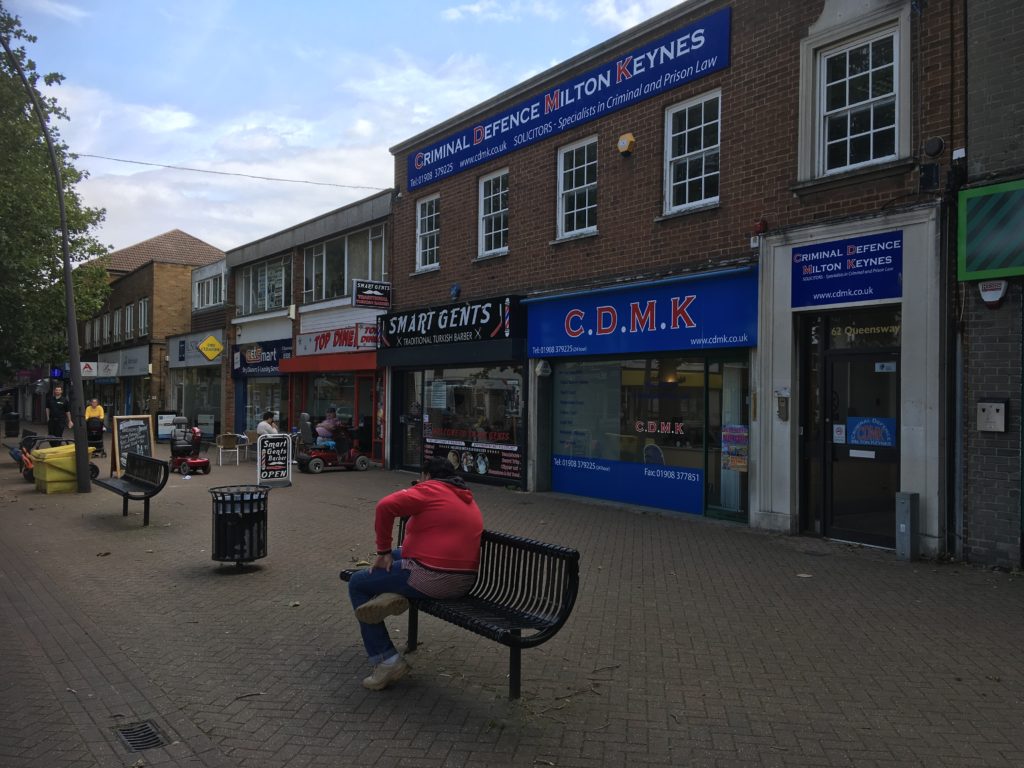
As a former teacher, I am aware that Britain has low levels of literacy and numeracy compared to the rest of Europe, but has made enormous efforts and committment to what used to be called Personal Social Health Education- as befits diversity.
It is interesting it needs the media and political elite to keep telling working class people what they really voted for when they voted to leave the EU. After the extension of the vote to working men in 1867,, one of the Tory Minsiters, Robert Lowe, said ‘We must now educate our masters.’ And so came the 1870 education Act for compulsory State funded education,
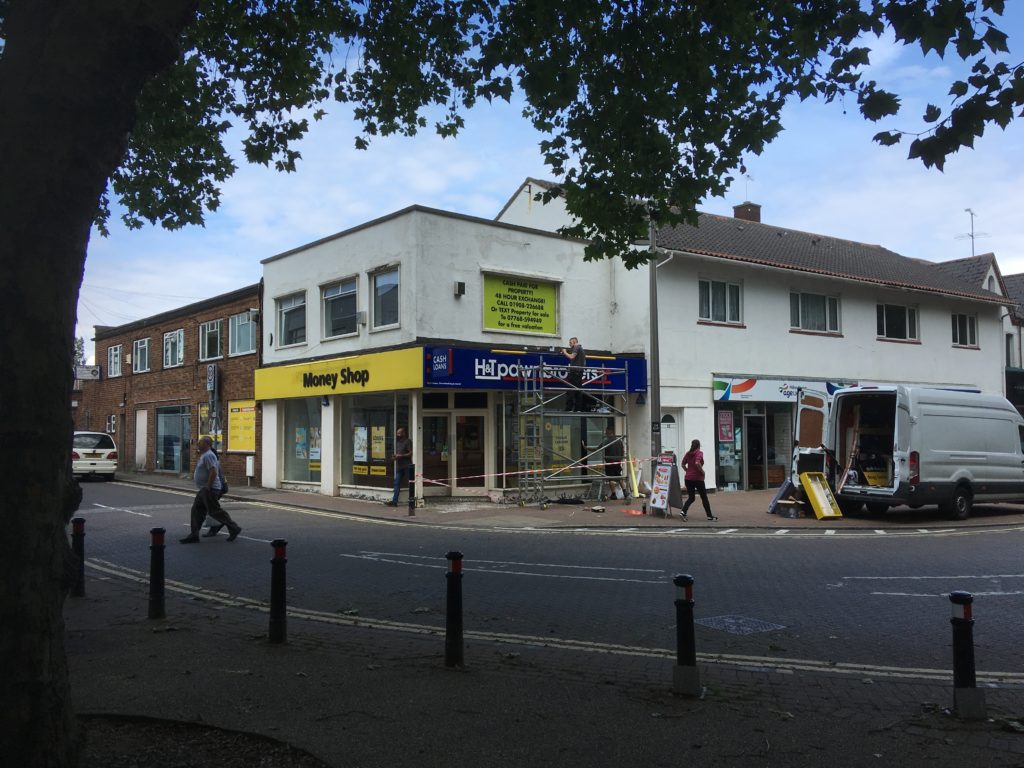
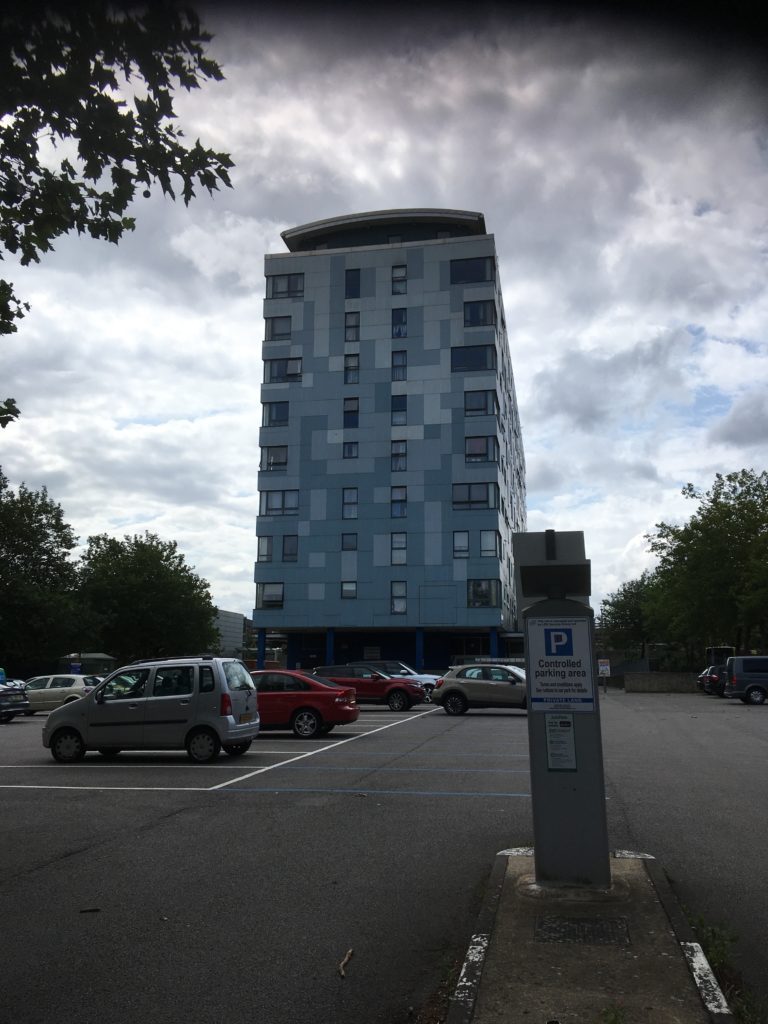
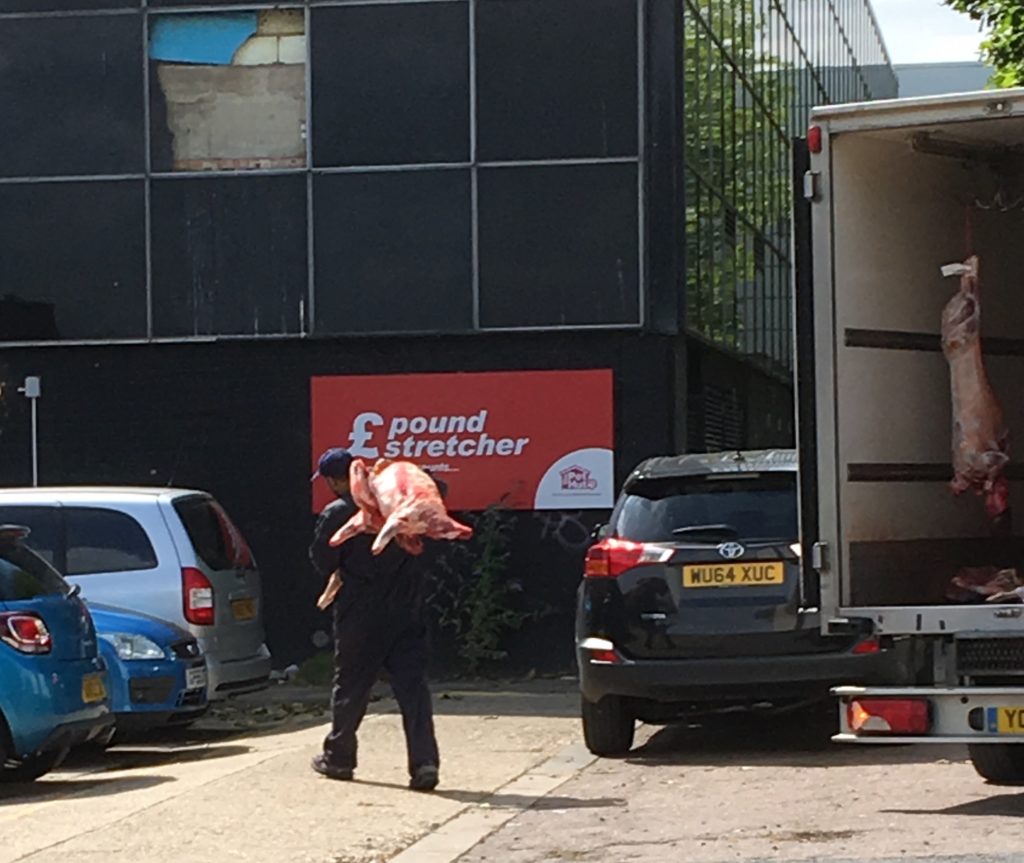
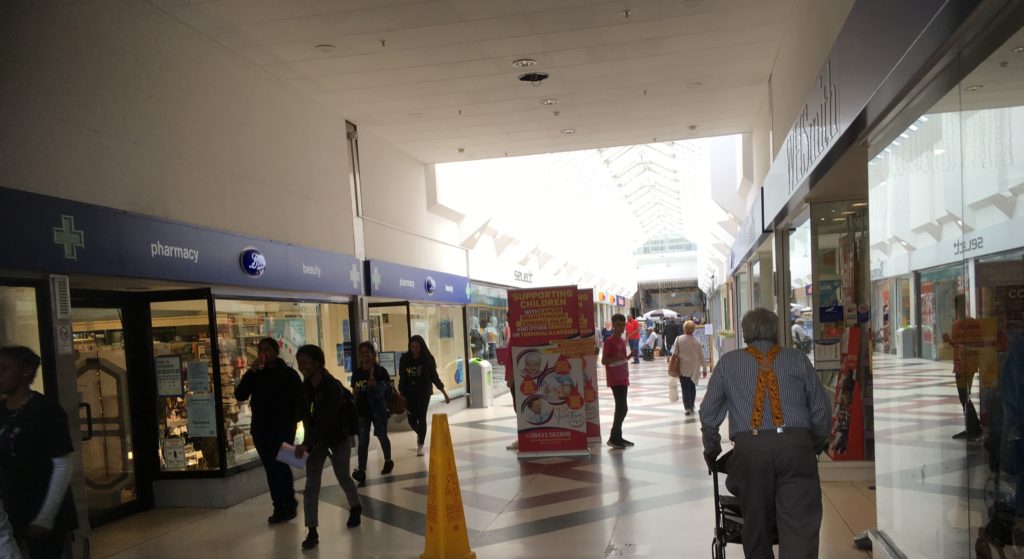
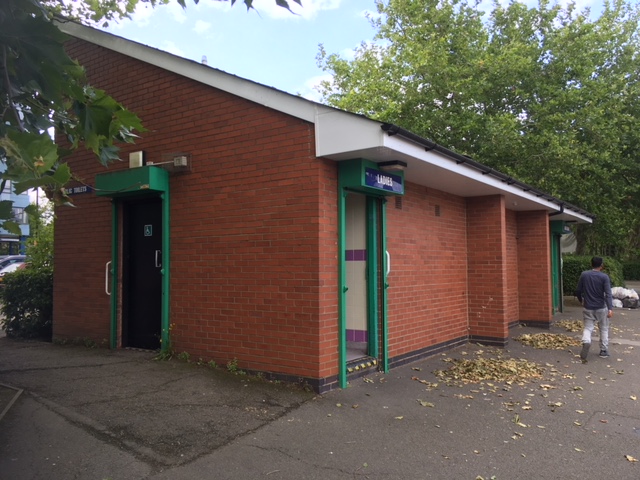
When the book ‘Building on the Vision’ went into a third edition, the author was invited to a book signing because the Mayor had been photographed holding up the book, thinking it was about praising the development.
The criticism of the way the original vision- for profit rather than meeting needs- was being distorted and built over rather than on, seemed to have been missed, according to author Robert Cook.

